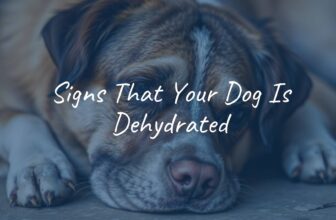
Many people wonder if dogs can get Down syndrome. The simple answer is no-dogs do not get Down syndrome. However, dogs can have various birth defects and genetic problems that might look a bit like Down syndrome in people. This is because Down syndrome in humans comes from an extra copy of chromosome 21, which dogs don’t have. Since their genetic setup is different from ours, dogs can’t have true Down syndrome. In this article, we’ll explain how dog and human genetics are different, look at some dog conditions that are similar to Down syndrome, and talk about how these are found and cared for.
Can Dogs Have Down Syndrome?
It’s common for pet owners to compare human illnesses with what they see in their pets, especially if their dog acts or looks different from others. But Down syndrome and the dog conditions that may seem similar are very different biologically.
Genetic differences between humans and dogs
| Humans | Dogs | |
|---|---|---|
| Chromosome pairs | 23 | 39 |
| Total chromosomes | 46 | 78 |
| Cause of Down syndrome | Extra chromosome 21 | N/A (no chromosome 21 in dogs) |

Down syndrome in humans happens when there is an extra chromosome number 21. This causes the features and learning difficulties that come with Down syndrome. Dogs, though, have 39 pairs of chromosomes (78 in total) arranged differently. For this reason, they can’t get the same kind of chromosome problems that lead to Down syndrome in people. If a dog did have an extra copy of one of its own chromosomes, the result would be very different and usually not survive birth.
Are chromosomal abnormalities like Down syndrome found in dogs?
Dogs can have genetic and birth defects, some of which cause delays in growth or look similar to Down syndrome, but these are their own conditions. Detailed genetic testing in dogs isn’t as common or advanced as it is for humans, so these problems are not always easy to pinpoint or name. Even so, dogs do not get Down syndrome itself.
Why Dogs Cannot Have True Down Syndrome
People might think a dog has Down syndrome when it looks or acts differently, but looking at dog genetics tells us otherwise.
Species-specific chromosome structures
Down syndrome is defined by extra human chromosome 21. Dogs don’t have the same set of chromosomes, so they can’t have this same problem. Even if a dog did have one more chromosome than normal, the effects would be nothing like human Down syndrome, and most such embryos wouldn’t survive to be born.
Limitations of genetic testing in dogs
Dog genetic testing is mostly used to find certain breed disorders, not to scan all possible chromosomal issues. The sheer number of chromosomes and the differences in dog breeds make it harder for scientists to match any one dog condition to a human disorder like Down syndrome.
Conditions in Dogs Similar to Down Syndrome
Dogs can have certain issues from birth or developmentally that may seem like Down syndrome. The main problems are different, but the outward behaviors or looks can cause confusion. Here are a few of the main ones:
- Congenital hypothyroidism: Causes low thyroid hormone, slow growth, small size, large tongue, short limbs, floppy muscles, slow learning, and eyes and ears opening late.
- Pituitary dwarfism: Often found in German Shepherds, this stops proper growth and keeps dogs looking like puppies into adulthood. These dogs are smaller, may have thin coats, act tired, and sometimes don’t live past 4 or 5 years.
- Congenital hydrocephalus: Fluid builds up around the brain, often in toy breeds and short-nosed dogs. Signs include a bulging, dome-shaped skull, wide or bulging eyes, poor movement, seizures, and trouble learning.
- Portosystemic shunt (PSS): Blood from the intestines skips the liver, causing toxins to build up. Affected dogs are small, may seem confused, have seizures, vomit, or have diarrhea, among other symptoms.
- Congenital heart defects: These are seen in many breeds, especially Bulldogs and Boxers, and can cause weakness, poor growth, and other signs that look a bit like Down syndrome.

How do these conditions mimic Down syndrome symptoms?
They can give dogs short stature, odd-looking heads or faces, trouble learning, weakness, and behavioral differences, much like the signs seen in humans with Down syndrome. But these signs come from very different causes than human Down syndrome.
Symptoms of Genetic Disorders in Dogs
Genetic issues in dogs can bring a wide range of symptoms. Here are some of the most common:
- Physical symptoms:
- Unusual-looking face or skull
- Stunted growth
- Deformed limbs or spine
- Poor hair or skin condition
- Behavioral changes:
- Slow learning or trouble with house training
- Uncoordinated movement
- Strange or repeated behaviors
- Lack of interest in people or animals
- Health problems:
- Poor sight or hearing
- Always tired
- Ongoing stomach problems
- Seizures or muscle twitches
Which Dogs Are More Likely to Show Down-Syndrome-Like Symptoms?
Any dog can have birth or genetic disorders, but some breeds have a higher risk, often because of how they have been bred over time.
- Small breeds (Chihuahuas, Toy Poodles, Yorkshire Terriers, Pomeranians, Manchester Terriers, Boston Terriers) can be prone to hydrocephalus or shunts.
- German Shepherds have a higher chance of pituitary dwarfism.
- Bulldogs and Boxers often have heart defects.
Within breeds, certain families (lines) can have more of these problems. Careful breeding that avoids inbreeding can help cut down on these disorders.
How Veterinarians Diagnose Down-Syndrome-Like Conditions in Dogs
If your dog shows unusual symptoms, the vet’s main goal is to find the real reason, not label it as “Down syndrome.”
What to expect during a veterinary assessment
The vet will:
- Examine your dog closely
- Ask about your dog’s health, growth, and behavior
- Check for odd physical features or slow development
- Test movement and mental skills
Early check-ups and finding problems quickly can help your dog get the right treatment sooner.
Diagnostic tools and genetic testing
- Blood tests can show organ function, hormone levels, signs of infection, or clues to liver problems like PSS.
- X-rays and ultrasounds reveal bone and organ differences; heart scans check for defects.
- CT or MRI scans look for brain issues like hydrocephalus.
- Some genetic tests are available for certain breeds and conditions.

Treatment and Management of Dogs with Down-Syndrome-Like Symptoms
After a diagnosis, the vet will recommend a care plan based on what’s wrong with your dog:
Veterinary treatment options
- Hormone pills for hypothyroidism and pituitary dwarfism
- Surgery for heart issues or PSS
- Medicines to reduce brain fluid in hydrocephalus, and sometimes surgery
- Medications to help the heart or manage seizures
- Some dogs can be managed with routine care and check-ups
Home care tips and supportive therapies
- Give medicine as directed by your vet
- Feed a balanced, sometimes special, diet
- Make home safe-block stairs, remove hazards, provide easy rest spots
- Try gentle exercise and physical therapy to keep muscles working
- Keep the coat clean and skin healthy with regular grooming
How to provide emotional support for special needs dogs
- Give extra attention and patience
- Use toys and treat puzzles for mental activity
- Train using positive rewards in short, gentle sessions
- Stick to a simple, steady daily routine
- Show plenty of love, as special needs dogs respond well to comfort and stability

When to See a Veterinarian
Spotting signs early is key. Go to the vet if you notice:
- Flat face, wide-set or bulging eyes, or a weirdly shaped head
- Very small size or poor growth
- Vision or hearing problems
- Skin issues or thin fur
- Short or curved limbs, trouble walking, weak muscles
- Learning problems, strange behaviors, or sleeping too much
Don’t wait-getting your dog checked quickly can make a big difference to their health and comfort.
Why early diagnosis improves outcomes
Treatments like hormone pills or surgery work best when started before too much damage is done. Even if a condition can’t be cured, early management means better comfort and a longer life for your dog. Fast action can stop small problems from growing into much bigger ones.
Prevention and Responsible Breeding
Dog breeders can lower the risk of these issues by testing breeding dogs before they mate and keeping the genetic pool as healthy as possible.
How to reduce the risk of genetic disorders in dogs
- Screen for common diseases with genetic tests before breeding
- Avoid mating dogs with known problems
- Don’t inbreed (breed close relatives)
- Keep plenty of variety in the gene pool
The importance of health screening in breeding programs
- Get heart, bones, eyes, and thyroid checked in breeding dogs, depending on the breed’s risk
- Pick breeders who provide health certificates and test results
- For buyers, ask to see health test results before buying a puppy
Frequently Asked Questions about Dogs with Down Syndrome
Can dogs have Down syndrome like humans?
No. Dogs do not get Down syndrome as humans do. The genes and number of chromosomes are different, so this condition cannot happen in dogs, but they can have other conditions that sometimes look a bit similar.
What are the signs of genetic disorders in dogs?
These may include unusual faces or heads, poor growth, oddly shaped bones or body, slow learning, seizures, tiredness, odd behaviors, and bad sight or hearing. If you see any of these, it’s a good idea to see your vet.
How should I care for a special needs dog?
Get regular vet checkups, follow any treatment plans, and make your home safe. Use gentle training and provide toys and puzzles for mental activity. Being patient and loving helps your dog feel happy and secure, even if they have extra needs.






